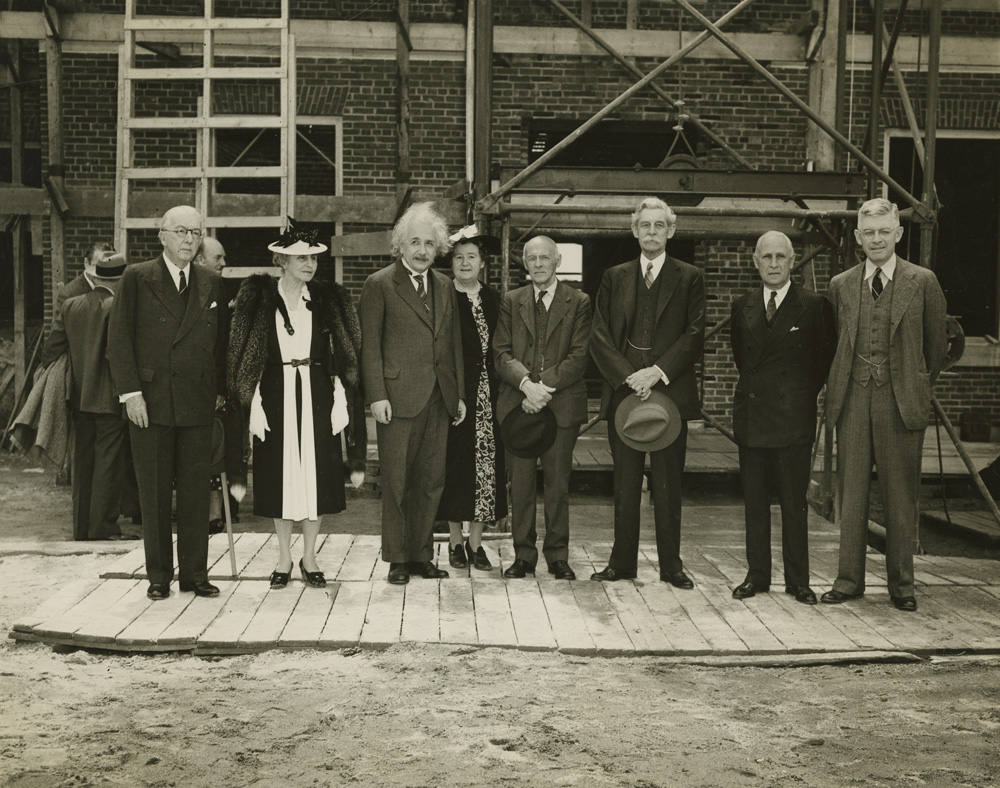IAS Brings Émigrés to Princeton
Institute for Advanced Study (1 Einstein Drive)

Albert Einstein and others at Fuld Hall cornerstone ceremony, Institute for Advanced Study, May 1939.
The Shelby White and Leon Levy Archives Center. Institute for Advanced Study, Princeton, NJ, USA
The Institute for Advanced Study was established in Princeton in 1930 by Jewish philanthropists Caroline Bamberger Fuld and her brother Louis Bamberger. The Institute came into existence at precisely the moment when some of the world's most illustrious scholars were at risk. Though founded purely as a community dedicated to advanced intellectual inquiry, it became a critical refuge for European scholars - a majority of whom were Jewish - fleeing Nazi Germany and Nazi-occupied Europe. ”
Albert Einstein, perhaps the most famous of these scholars, arrived in Princeton in 1933. With the Nazis’ rise to power, the Institute intensified its activism in support of displaced scholars. Some of these intellectuals only spent limited time in Princeton, while others became faculty at IAS and/or Princeton University. The majority of the Jews who found a haven in Princeton forged their own tight-knit community and were not fully a part of the broader Jewish community. Many, like Einstein, were “religious non-believers.” Yet, a point of intersection was the shared concern for other Jews still trapped under Nazi rule and many émigré scholars became actively involved with the Princeton United Jewish Appeal, a Jewish philanthropic organization.